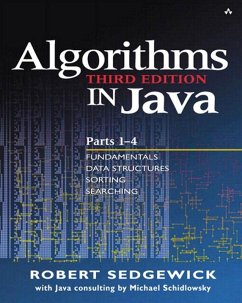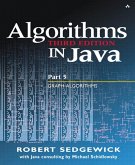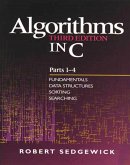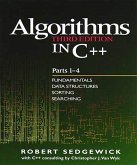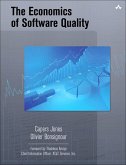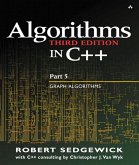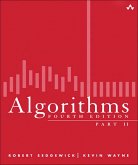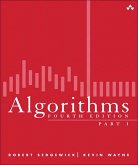--William A. Ward, University of South Alabama
This edition of Robert Sedgewick's popular work provides current and comprehensive coverage of important algorithms for Java programmers. Michael Schidlowsky and Sedgewick have developed new Java implementations that both express the methods in a concise and direct manner and provide programmers with the practical means to test them on real applications.
Many new algorithms are presented, and the explanations of each algorithm are much more detailed than in previous editions. A new text design and detailed, innovative figures, with accompanying commentary, greatly enhance the presentation. The third edition retains the successful blend of theory and practice that has made Sedgewick's work an invaluable resource for more than 400,000 programmers!
This particular book, Parts 1-4, represents the essential first half of Sedgewick's complete work. It provides extensive coverage of fundamental data structures and algorithms for sorting, searching, and related applications. Although the substance of the book applies to programming in any language, the implementations by Schidlowsky and Sedgewick also exploit the natural match between Java classes and abstract data type (ADT) implementations.
Highlights
- Java class implementations of more than 100 important practical algorithms
- Emphasis on ADTs, modular programming, and object-oriented programming
- Extensive coverage of arrays, linked lists, trees, and other fundamental data structures
- Thorough treatment of algorithms for sorting, selection, priority queue ADT implementations, and symbol table ADT implementations (search algorithms)
- Complete implementations for binomial queues, multiway radix sorting, randomized BSTs, splay trees, skip lists, multiway tries, B trees, extendible hashing, and many other advanced methods
- Quantitative information about the algorithms that gives you a basis for comparing them
- More than 1,000 exercises and more than 250 detailed figures to help you learn properties of the algorithms
Whether you are learning the algorithms for the first time or wish to have up-to-date reference material that incorporates new programming styles with classic and new algorithms, you will find a wealth of useful information in this book.
Dieser Download kann aus rechtlichen Gründen nur mit Rechnungsadresse in A, B, BG, CY, CZ, D, DK, EW, E, FIN, F, GR, HR, H, IRL, I, LT, L, LR, M, NL, PL, P, R, S, SLO, SK ausgeliefert werden.

